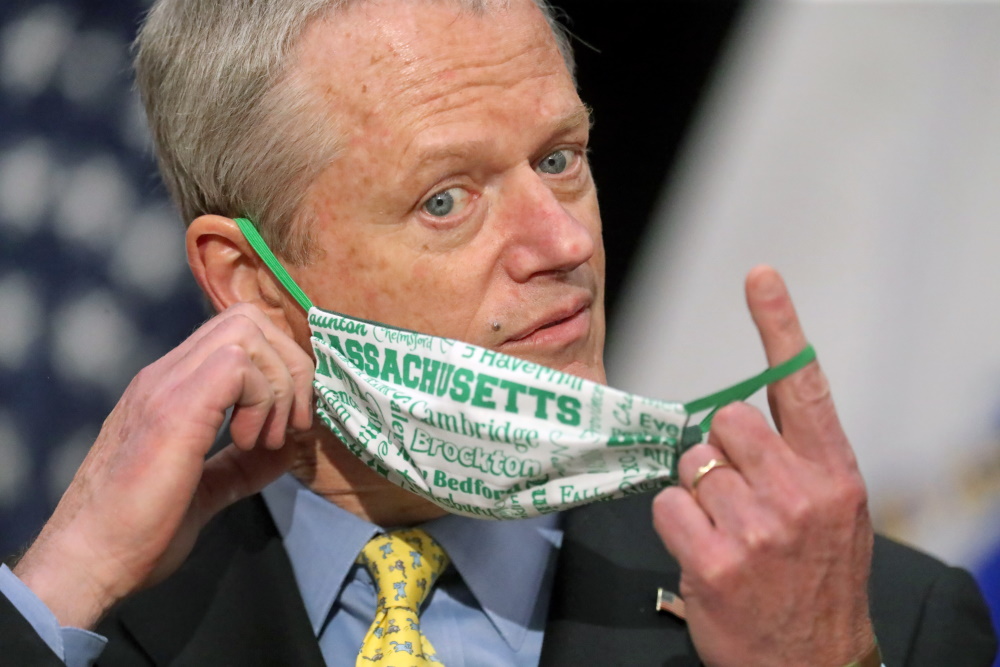latest
Final Report: Massachusetts wasn’t ready for pandemic

By Colin A. Young
JUNE 29, 2022…..Following a year and a half of work, nine hearings and six listening sessions, the Legislature’s COVID-19 committee this week released a report and 16 recommendations that members said would put Massachusetts on a better footing to deal with future calamities.
The Joint Committee on COVID-19 and Emergency Preparedness and Management’s report also reviews state government’s response to the first global pandemic in 100 years, but the lawmakers on the committee also called for a “statewide after-action-report” to look in detail at the steps state government took (and did not take) as the pandemic unfolded over the last two-plus years. The committee suggested that a “comprehensive commission charged with a complete review of what transpired during the pandemic” could handle that task.
The 52-page report’s 16 policy and regulatory recommendations touch upon many of the issues that lawmakers raised with Baker administration officials, medical experts, technology vendors and others during oversight hearings — the organizational structure of the state’s response, the role of local boards of health in that response, the rollout of vaccinations and information, and data collection and reporting.
“When COVID hit, we were less resilient and less prepared than we ought to have been. This report will help our Commonwealth respond and recover equitably from this pandemic as well as be better prepared for the next contagion or the next disaster,” Sen. Jo Comerford of Northampton, who co-chaired the committee alongside Rep. Bill Driscoll of Milton, said.
The committee included many of its report recommendations in omnibus legislation (H 4714) that it reported out in April. That bill has also been given a favorable report from the Committee on Health Care Financing and has been pending before the Senate Committee on Ways and Means since mid-June. The fate of that bill could indicate whether the Legislature at large agrees with the conclusions reached by its new joint committee.
“These recommendations include components that require unwavering commitment in order to achieve the intended reforms. The Committee recommends that the state begin this work without delay,” the report concludes.
Among the committee’s recommendations is that Massachusetts identify “sufficient funding streams” and expand regional initiatives to strengthen local and regional public health infrastructure “so local officials can lead and plan for local emergency response.”
Even as Massachusetts climbed the state rankings for shots administered last year, the Baker administration’s choice to deliver many of those shots at mass vaccination sites rather than through local clinics and municipal public health infrastructure was a recurring frustration voiced by committee members at oversight hearings and in public statements.
The committee acknowledged in its report that the state’s 351 municipalities “have widely varying abilities to provide public health protections to residents” at least in part because Massachusetts is one of a handful of states that does not dedicate annual baseline or formula funding to local public health departments. While some cities or towns have professional and robust public health departments, others are staffed exclusively by volunteers.
“This is always dangerous for public health, and during the pandemic the consequences were severe,” the committee said in its report.
The joint committee said Massachusetts “must enact legislation that would set statewide standards and provide funds to ensure that everyone has access to a core set of public health protections and that there are sufficient funds for robust capacity building and data collection.”
On the vaccine rollout front, the Baker administration on Wednesday announced an additional $7 million in funding for COVID-19 vaccine equity efforts, at least partially addressing some of the issues the committee raised by providing financial support to community organizations that work to reduce the barriers to vaccine access and that promote vaccines and boosters for the communities most disproportionately impacted by the pandemic.
“Throughout the pandemic, we have turned to trusted community-based organizations who know their communities best,” Public Health Commissioner Margret Cooke said. “They continue to tap their knowledge and relationships to expand and support our Vaccine Equity Initiative by addressing the unique health equity needs of the populations they serve — needs that continue to be exacerbated by COVID-19.”
In its 16th of 16 recommendations, the COVID-19 Committee said that what the state really needs is, essentially, a COVID-19 vaccination czar.
“The Committee recommends that a special assistant to the Governor be created to serve as the senior level position in the administration for the purposes of reinvigorating the efforts to close existing vaccination gaps, planning for future surges, and setting and meeting immediate and long term goals for COVID-19 vaccination rates in the Commonwealth,” the committee said.
The Legislature was not alone in releasing a report on the pandemic this week. The Massachusetts Health & Hospital Association published its “Better Together” report Wednesday detailing from a health care industry perspective the “critical lessons that should be used to both prepare for the next public health crisis and improve the system as a whole.”
“Massachusetts’ COVID-19 response has been nothing short of remarkable. But our ability to weather the storm and avoid some of the dire scenarios seen in other states was no accident,” MHA President and CEO Steve Walsh said. “Our members recognized the importance of taking a comprehensive look at what we have learned over the past two-plus years and use those lessons to chart a path forward. This report is intended to do just that.”
The MHA report concludes that health care “is forever changed” and that health care workers, good data collection and reporting, and access to resources like money and supply chains are essential to being prepared for the next public health crisis.





BetterThanEvilMassonic
June 29, 2022 at 7:42 pm
How can you prepare for a Plandemic? The Wuhan Covid 19 farce was an agenda driven event carried out with the intent to interrupt free people’s lives! Luckily those who brought forth this evil have been exposed and in the near future with pay the cost for their evil transgressions. No refuge will be given! You know who you are.